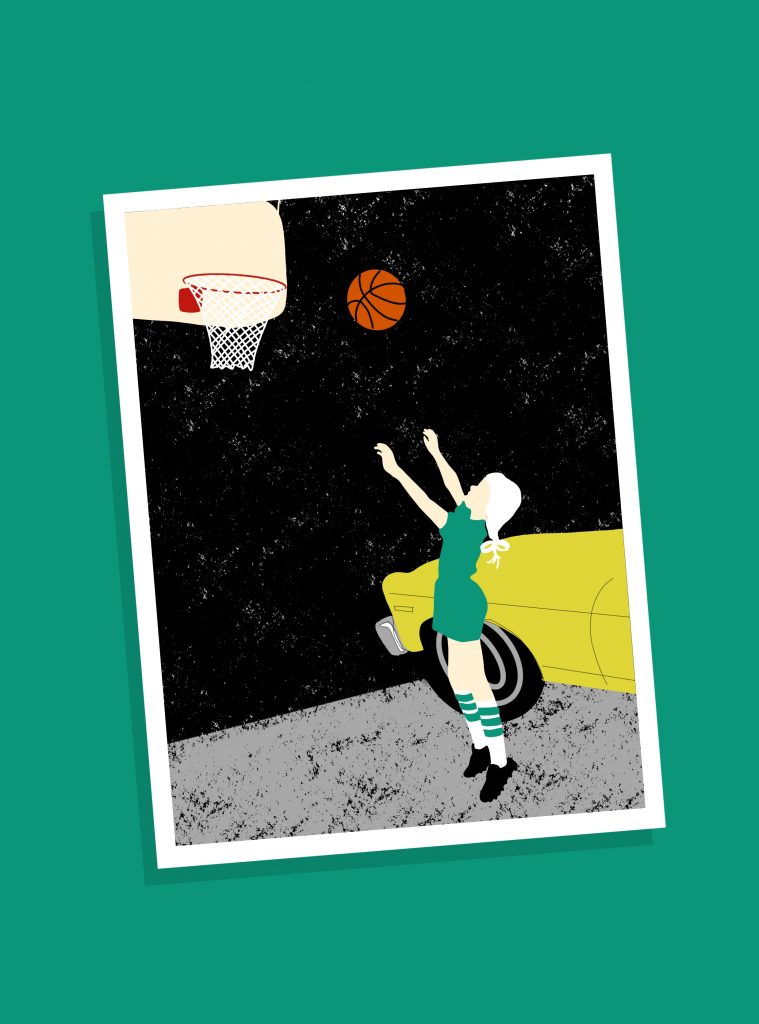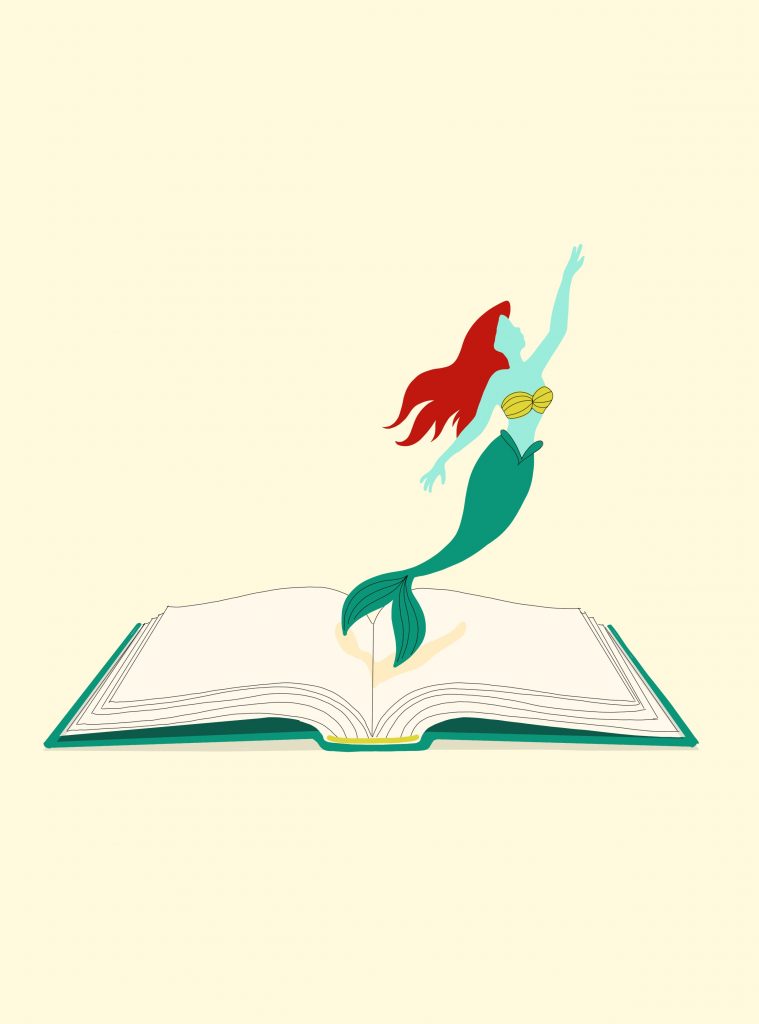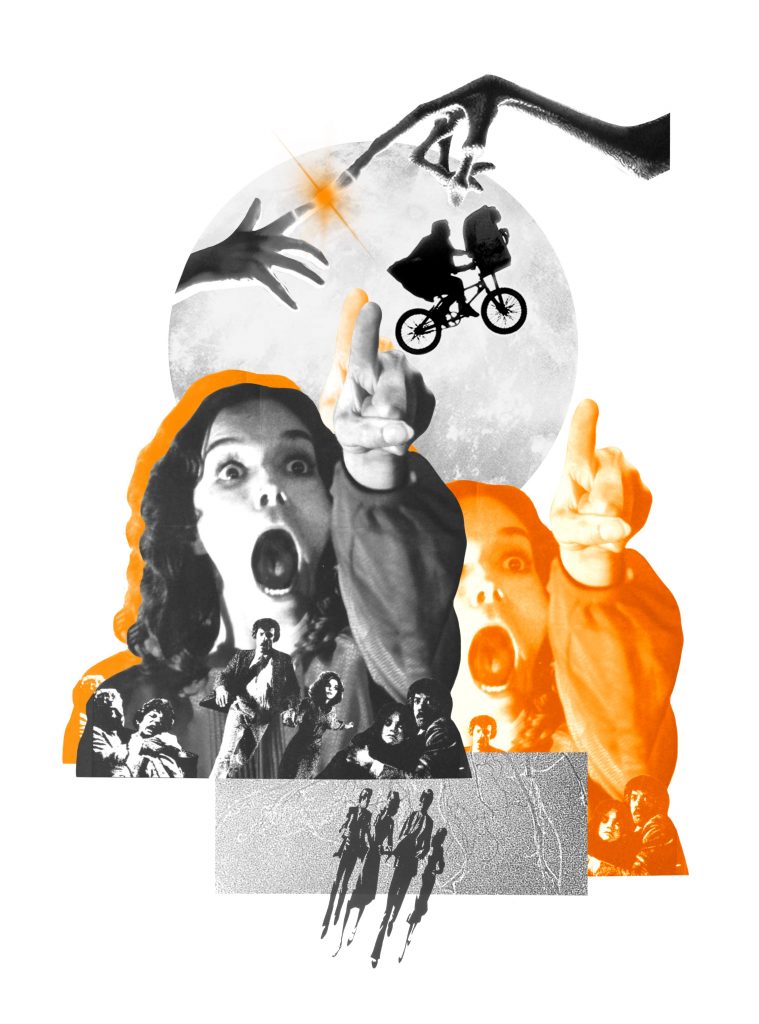Contrary to what the New York Dolls said in 1973, personality crises are not hot. Searching for identity or struggling to love the “new” or “old” you is tough—especially when you’re a kid. The “journey,” as people insist on calling it, inevitably comes with anxiety, ambiguity, and anger. In hindsight, we can recognize these emotions as natural, or even essential, to our development as people. But that’s pretty cold comfort to a pissed off and confused seven-year-old.
Mary Laura Philpott understands this. In her new memoir-in-essays, I Miss You When I Blink, the local editor (she founded MUSING, the digital magazine published by Parnassus Books) and general local lit person (she’s cohost on Nashville Public Television’s A Word on Words) waxes poetic about her life as a “type-A overachiever who checks all the boxes she thought she needed to feel like a happy, successful adult, but who eventually finds herself feeling lost, anxious, and in need of reinvention.”
If that sounds familiar, it probably means you’re human. And if you’re human, you’ll more than likely relate to the essays in I Miss You When I Blink, available now via Atria Books. There’s no promise they’ll make you love or understand that paradoxical entity that is you, but they might make you laugh and feel a little less alone as you navigate this thing called life.

The following is an excerpt from “Mermaids and Destiny,” one of the essays featured in Philpott’s I Miss You When I Blink.
Every now and then, a school will ask me to come speak to a group of students, and each time I do it, I get a little nervous. I always wonder what I might possibly have to say that teenagers want to hear.
When I ask teachers what they expect me to talk about, they say, “Tell them about your life path, your career.” I suppose this is because the job market is garbage these days and kids need to know there are lots of ways to make a living, even by cobbling together a hodgepodge of part-time jobs and creative projects. I’m not sure, but I want to prove myself worthy of the invitation, so I try to leave them with something useful.
I start by showing a picture of myself in second grade: In the photo, I’m caught mid-jump, throwing a basketball that’s clearly headed about two feet short of the basket. I’m wearing soccer cleats (to play basketball) with a T-shirt tucked snugly into the elastic waist of my shorts, just under my armpits. I’m grinning like I think I’m really nailing it, and my hair is tied with white bows in two pigtails.
“You might look at this and assume I’d grow up to be a professional athlete,” I begin. “But life doesn’t always turn out the way you expect.” Gets a laugh every time.
Whether you think you know exactly who you’ll become or you have absolutely no idea, I tell them, one thing is true for everyone, for better or for worse: Life will surprise you. You’ll hit dead ends and detours. There will be times when you can’t fathom what comes next. When that happens, remember yourself as you are right now. Remember yourself as you were when you were even younger. Who were you when you weren’t wondering who you were?

Here’s who I was.
I was seven, I was bored, and I had already pillaged our living room bookshelves for everything except the Sidney Sheldon and Danielle Steel, which I couldn’t reach. So I grabbed what was left: a dusty, leather-bound book of short stories by Hans Christian Andersen. It fell open to “The Little Mermaid.”
This was the first I had heard of mermaids (the book came into my life before the movie), and the opening conversation between a bevy of teenage mermaid sisters and their grandmother hooked me immediately. The youngest sister, who has just witnessed a shipwreck and helped a drowning human prince to shore, wants to know: How long do humans live? How long do mermaids live? What happens when you die? (You can see how it appealed to a seven-year-old.)
Mermaids, according to the grandmother, live for three hundred years. Humans live a shorter time, but when they die, their souls live on forever. Not so for mermaids. “Is there anything I can do to get an immortal soul?” the mermaid asks. Not much, the grandmother answers. You’d have to marry a human, but that’s darn near impossible, because mermaids can’t walk on land. Tough tail fins, sister.
Among the many ways the original short story differs from the cartoon film (see also: singing crabs, oyster-shell bikinis), there is one whopper of a distinction, and you get a hint of it in this line: “She could not forget the charming prince, nor her sorrow that she had not an immortal soul like his.” See, in the story, the little mermaid thinks the prince is cute, but she doesn’t decide to go back out to the beach looking for him because he’s so irresistible. She goes back because she wants a soul.
The way I read it, she’s not lovesick. She’s ambitious.
But to get what she wants, she has to strike a raw deal with a bad witch and trade away her voice for feet. Then everything goes wrong. Once on land, she can’t tell anyone who she is or what she needs—she can’t say anything—and she ends up standing mutely by as the prince meets and marries someone else. The real bummer is that, according to the witchy bargain, she can’t cut her losses, grow her tail back, and revert to mermaid life. Failing to seal the deal means she is doomed to die. After the prince and his new bride are married on the deck of a grand ship, the mermaid-turned-human stays up all night gazing out at the waves because she knows she won’t live past sunrise. Then, just before morning, she sees her sisters rise to the surface, waving frantically.
It turns out that in this bizarre underwater commerce where you can buy magic with your body parts, they’ve traded their long, beautiful seaweed hair for one last out. There’s a way the little mermaid can save herself: “The witch has given us a knife,” they say. “Before the sun rises, you must plunge it into the heart of the prince. When his warm blood falls upon your feet, they will grow together again, and you will once more be a mermaid. Or in a few minutes the sun will rise, and you must die.”
Kill or be killed. Your classic Scylla and Charybdis, the devil and the deep blue sea. That’s a bit darker than the animated movie.
The little mermaid takes the knife. She sneaks into the ship’s honeymoon suite. She raises the blade over the sleeping prince, poised to stab him . . . and she can’t do it. She drops the knife and leaves the room, then slips over the rail of the ship and into the water, where she dissolves into sea foam. She has lost her remaining 285 mermaid years; she has lost her brief humanity; and, most tragically, she has lost what she gambled everything for—a chance at a soul. It’s all over.
Holy hammerheads, that story made me mad. I read and reread it until my thumbs wore the print off the pages, desperate to find the loophole, some way it could all end differently. What could the mermaid have done to turn things around, to get everyone’s attention and explain herself before it was too late? I mean, good grief, couldn’t she have written a simple note?
My God, couldn’t she?
I obsessed over this fictional dilemma for years. As unlikely as it may seem that a seven-year-old would fall asleep raging against Neptune, plotting undersea education reform, I was stuck on it. I couldn’t decide whom I was angrier at: the fictional mermaid population for not developing some sort of alphabet or sign language, or Hans Christian Andersen for leaving such a ridiculous hole in the story. It was so unfair—so stupid—that the sea-girl couldn’t write her way out of trouble.
When I think about that mermaid now, I think about the things people trade away to get something else.
I think about what other girls suffer, girls who live not under the sea, but in places where the deck is stacked against females from the start, cities where it’s not safe to walk to school, countries where young women are forced to marry against their will. I think of the lengths some women must go to in order to protect their own lives. I think about my daughter, my friends’ daughters, girls growing up in America at a time when the word feminist is fashionable again, and girls growing up in places where feminism has not even broken through to the surface.
I think about people who can’t ask for what they need, and also people who just think they
can’t. I think about how sometimes we hesitate to speak up out of fear of being seen as selfish or greedy. Imagine the lives we’d live if we were all able to say what we wanted out loud, or put it on paper if necessary.
And as I reflect on my imaginary mermaid friend who lacked the skills to save herself, I also think about what that story taught me—and I don’t mean the contrived moral tacked onto the end of the fairy tale; I mean the lesson I took away from it and carried with me forever.
Baby, you better learn to write.
From I Miss You When I Blink by Mary Laura Philpott. Copyright © 2019 by Mary Laura Philpott. Reprinted by permission of Atria Books, an imprint of Simon & Schuster Inc.
Suggested Content

Write All About It
How literary nonprofit The Porch is giving local writers the tools—and the confidence—they need to share their stories

PHOTO RECAP: Lit Party
We went to the Lit Party on Wednesday night at the Analog at Hutton Hotel. Here's what we saw.

